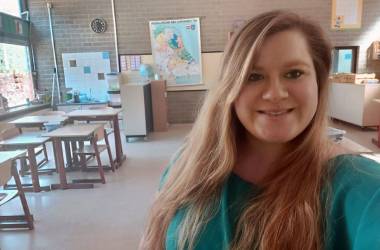As Class-Based Education Screeches to a Halt, Schools and Universities Face Different Learning Curves
As Class-Based Education Screeches to a Halt, Schools and Universities Face Different Learning Curves
As Class-Based Education Screeches to a Halt, Schools and Universities Face Different Learning Curves
In March of this year, class-based education for both schools and universities in the Netherlands screeched to a halt. Samantha Birdsall, Project Week teacher at Wittenborg University of Applied Sciences, is in a unique position because she is also a substitute primary school teacher at the Prins Willem Alexander School in the Dutch town of Laren. In an interview she gave the inside scoop on how each is coping with their new reality of online education, the challenges and what lessons can be taken into the future.
"What I Learnt About Online Education from Primary School Children vs University Students"
What does a typical day for Birdsall look like? Well, one week she might be teaching 7-year olds, the next week helping university students prepare to present their projects, while at the same time juggling motherhood and marriage. Since the corona outbreak also spread to the Netherlands, almost all her teaching work moved online.
As one might expect, this presented a bigger learning curve for schoolchildren. Birdsall teaches Group 4, 5 and 6 which commonly comprise 7–10 year olds. "The biggest difference between the levels of learning is that university students can work independently and they know how to use a computer, while with schoolchildren you cannot do distance learning without the help of parents. You have to show them how to set up and working at home can be quite stressful. The fact that I also helped with setting up our Teams online at Wittenborg was an advantage.
"This is now already our 4th week of teaching from home and it's getting better all the time. Let me just say that online education can never fully replace class-based education. At the same time, this is an opportunity for all of us to refine our online teaching skills." According to Birdsall, the first few weeks at school were mostly about repeating stuff. Some subjects like reading and grammar can be done directly, while subjects like mathematics required making instruction videos.
At Wittenborg about 90% of its students are international and about 80% are from outside the EU/EEA. With the outbreak of corona, some have chosen to go back to their home countries. "One of the problems this poses is that students are sometimes in completely different time zones. But I have been struck by how committed they are, completely switching their day and night schedules sometimes.
Another challenge was that internet connections in some countries can be patchy; this leads to some students falling behind in their assignments. The key is to keep in regular contact with everyone in your group and come up with solutions together."
WUP 14/4/2020
by Anesca Smith
©WUAS Press
473 words
